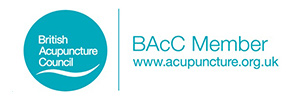
Treatable Conditions with Acupunture
Acupuncture is part of a system of medicine called Traditional Chinese Medicine. With careful diagnosis, examination of the pulse and tongue and taking a full case history, acupuncture can treat the symptoms of many illnesses. It can effectively treat physical disorders but can also treat distress at mental and emotional levels.
The following conditions are commonly treated using acupuncture:
- Fertility and Gynaecology problems Including IVF support
- Pain management
- Digestive/Gastro-intestinal problems
- Anxiety and Depression
- Insomnia
- Headache and Migraine
- Nausea
- Fatigue
- Respiratory problems
Anxiety and Depression
In Great Britain around one in 8 adults has a mental health disorder (such as anxiety and depression).
“The World Health Organisation estimates that by the year 2020, depression will be the second most burdensome illness in the world.” (The World Health Organisation 1996)
These large numbers often come as a surprise as mental health problems remain a taboo subject with many people suffering in silence. Some people feel embarrassed about admitting to difficulties with mental health issues in a way that they would never feel about a more physical problem. The lack of external symptoms can sometimes lead to a lack of sympathy from people around them which can further exacerbate the situation.
Acupuncture has been shown to be an effective and safe treatment for a whole range of mental health issues from low mood and stress through to anxiety and panic disorders.
In terms of Chinese Medicine, acupuncture works by seeking to restore the body’s natural balance. The acupuncturist will take a detailed case history and seek to understand exactly how the patient is suffering. Mental health issues can be caused by a number of different factors and a number of different organs can be involved .In Chinese medicine, different organs are responsible for different emotional states. The Liver is associated with anger (or repressed anger and frustration), it is also responsible for our ability to make plans and see a brighter future (something often lacking when we are depressed) .The Spleen is associated with worry and overthinking and the Kidneys are associated with fear. Too much worry and too much fear can result in obsessive compulsive disorders and phobias. The Heart is associated for Joy and the Pericardium (or Heart Protector) is associated with feelings of vulnerability and anxiety.
During the consultation the acupuncturist takes into account all the signs and symptoms of the patients condition and then make a specific “prescription” of acupuncture points which will be tailored to that particular patient.
From a western medical perspective, acupuncture seems to have an effect on the autonomic nervous system and can trigger the release of cerebral serotonin, our happy hormone.
Insomnia
Insomnia is an inability to fall asleep or to stay asleep for long enough to get a good nights rest. Proper rest is essential to good health, and sleeplessness is a sign of imbalance.
People with sleep problems are often amazed at how much a good night's sleep can change their life. With more rest, energy and focus improve, the immune system and the body's ability to deal with stress are strengthened, and nagging health conditions resolve more easily.
In Chinese medicine, sleep is seen as one's yang energy moving inward to be enfolded by yin. Many different patterns of imbalance can hinder this process. Sleep can be disrupted by pain, hormonal imbalances; digestive or cardiovascular disorders, anxiety and depression, and many medications have the side effect of sleeplessness. The effects of imbalance can be as simple as difficulty quieting the mind when preparing for sleep, or sleep which is easily disturbed by light or sound, to very restless, agitated or dream disturbed sleep.
During the consultation the acupuncturist takes into account all the signs and symptoms of the patients condition and then make a specific “prescription” of acupuncture points which will be tailored to that particular patient in order to correct imbalances and effect a better night sleep.
Headaches and Migraine
Headaches can be a common symptom of many conditions, and almost everyone will experience headaches at some point in their life. Usually these are not serious and will improve without any treatment. Persistent headaches however (and especially migraine or migraine type headaches) can be completely debilitating.
Acupuncture can be extremely effective at combating all kinds of headaches including migraines.
For persistent chronic or migraine headaches, the acupuncturist will need to take a detailed case history which includes questions about all aspects of the patients life as well as many questions about the headaches themselves such as the exact nature of the pain, where exactly the pain is, if it is better for rest or for movement, when the headache occurs, etc. From this the acupuncturist will decide what the primary cause of the headache is in terms of Chinese medicine and will tailor a specific “prescription” of acupuncture points to be used. Acupuncture can often reduce the severity and frequency of the headaches and in some cases stop the headaches altogether.
Nausea
Acupuncture can be a very effective treatment for relieving nausea whatever the cause.
Travel sickness
Many people will have seen the travel bands which are sold often at airports to reduce travel sickness. These bands are designed to simulate the acupuncture point P6.
Morning Sickness
Morning sickness in the first trimester can be quite severe in some pregnancies and acupuncture can be extremely effective in eliminating this.
Chemotherapy induced nausea
Acupuncture can also be used to minimise the nausea caused by some drug regimes especially the nausea often caused by chemotherapy.
Unexplained nausea
Acupuncture can be used for treating nausea even when there is no obvious cause. It can also be useful for treating problems with appetite and eating disorders.
Whatever the cause of the nausea the acupuncturist takes into account all the signs and symptoms of the patients condition and then make a specific “prescription” of acupuncture points which will be tailored to that particular patient.
Fatigue
Tiredness or fatigue affects all of us from time to time but in the normal run of events it will pass after some relaxation or a good nights sleep. Persistent tiredness however can become a long term problem which can seriously affect the quality of life. At any given time, one in 10 people suffer with persistent tiredness.
For some people, tiredness is a symptom of a medical condition such as Myalgic Encephalopathy (M.E). Glandular Fever, Anaemia, Fibromyalgia or Diabetes (to name a few). For other people, there may be no discernable cause.
Patients with M.E. and Fibromyalgia have also found acupuncture helpful in mitigating the symptoms of their disease.
Tiredness can be a result of being overweight. If you are overweight your body has to work harder than normal to do everyday activities. Being tired can also be a vicious circle from which it is difficult to escape. The tiredness makes it difficult to face physical activities. Avoiding the physical activities leads to lower levels of fitness and so increases the feelings of being tired.
Stress and worry are tiring emotions. Facing a stressful situation can be draining, especially when you can't see a solution to your problems. Feeling that you have no control over a situation may make you frustrated, irritable and tired. Tiredness can also be triggered by stressful situations. This may include a recent bereavement, financial circumstances, moving house, family issues or work problems. Mental health problems such as depression or anxiety can make you feel more tired. They can also prevent you from sleeping properly which can obviously lead to tiredness.
Acupuncture can help with tiredness whatever the cause. Many patients, who have acupuncture treatment for an unrelated condition, comment on how they have seen their energy levels improve since they started their treatments.
Acupuncture often improves sleep and lowers anxiety which in turn often improves tiredness.
Regardless of the western diagnosis of the cause of the tiredness, the acupuncturist will always take a full case history. They will ask questions about the patients presenting symptoms as well as details about the patient’s current lifestyle and situation. The acupuncturist will then work out a treatment plan specific to that individual patient’s needs.
Respiratory Problems
Hay Fever
Effective treatment of hayfever using acupuncture is achieved by targeting treatment at the presenting symptoms as well as strengthening any underlying deficiencies in the body. The common
symptoms such as itchy, streaming and red eyes, a runny nose, sneezing and irritability are normally described as an invasion of wind and heat in Chinese medicine. Acupuncture points on the
head and around the nose are used to drive out the wind-heat and this can effectively clear hayfever symptoms in the short term.
For more long term relief, treatment needs to be directed to strengthen the energy of the kidneys and the immune system overall. Acupuncture can help to boost the body's overall constitution and hopefully prevent re-occurences of hayfever the following year.
Although a long term solution is generally recommended, sometimes remarkable results are achieved in just one session.
Asthma
Asthma is a pulmonary disorder characterized by wheezing and breathlessness due to obstruction and inflammation of the airways.
According to Western diagnosis there are many causes of asthma. Allergens such as pollens, smoke, alcohol, house dust and animal hair may trigger an asthma attack. Asthma may also be induced by non-allergy related factors such as exertion, cold air, stress, anxiety, crying, hearty laughing, and viral infection.
In Oriental Medicine also, there are many factors that may trigger an asthma attack. Examples include the invasion of the external pathogenic factors, diet, emotional disturbances, congenital weakness and chronic illnesses.
Based on consultation and whether the asthma is caused by cold, heat or deficiency the acupuncturist will arrive at a specific “prescription” of acupuncture points tailored to the patient in order to reduce the severity and frequency of the asthma attacks.
Coughs and Colds
Most people consider it normal to suffer from a few colds each year. The immune system can be strong enough, though, that you can go for an entire year without suffering a cold.
Acupuncture can stop a cold in its tracks and lessen both the severity and the duration of a cold. It can also help to clear any residual phlegm, mucous or stuffed nose left over
once the acute phase of a cold has passed.
Other people experience more than just the occasional cold or flu. They may find that a cold will continue for a long time and the body finds it difficult to fully shrug it off. They may well recover from a cold or flu only to find that they contract another shortly after.
Acupuncture works to strengthen the body’s immune system to help the patient recover and also protect against future cold or flu.
For some people a cold or flu will tend to turn into more serious conditions such as recurring bronchitis or a flare-up of an asthmatic condition. Acupuncture can boost the immune system in order to prevent colds, thereby breaking the vicious cycle of colds turning into more serious conditions which make the body more run down.
For more information or to arrange an appointment contact us on 07709 896140 or alternatively email lesley@atcnewbury.co.uk. Ask about our introductory offer at the time of booking.




